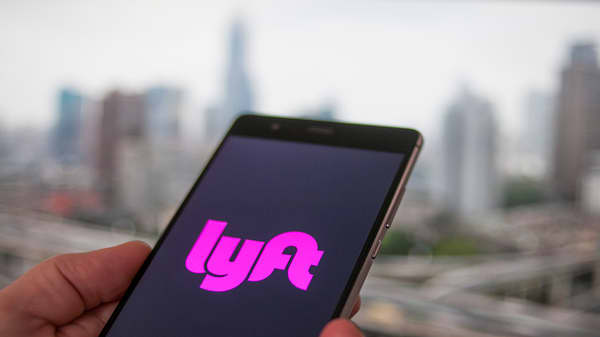Founders: Logan Green (CEO), John Zimmer
Launched: 2012
Headquarters: San Francisco
Funding: 4.3 billion (PitchBook)
Valuation: $11.7 billion (PitchBook)
Key technologies: Artificial intelligence, machine learning
Disrupting: Public transportation, taxi and limousine services
As Lyft continues to burnish its image as the kinder, gentler alternative to bad-boy rival Uber, its growth is accelerating. This month the San Francisco-based company claimed it now has 35 percent of the national ride-sharing market, up from 20 percent 18 months ago. This represents a growth of 75 percent. In 2017 Lyft said it provided 375.5 million rides, a 130 percent increase over 2016.
Lyft credits this most recent uptick to more activations of passengers and customers and greater brand awareness. Lyft is also continuing its expansion outside the United States. The first market was Toronto last year, and it recently added Ottawa.
Read More: FULL LIST: 2018 DISRUPTOR 50
Like its archrival Uber, Lyft is expanding its definition of transportation. In February the company announced it was teaming up with Baltimore Bike Share to transform five bike-share stations in the city into Lyft pickup and dropoff spots. Called co-location transportation hubs, they will offer both bikes and ride-sharing pickups. The company is also trying to think beyond its own walls with its Round Up and Donate program. It allows passengers to round up their fare to the nearest dollar and donate the difference to charity. During 2017 Lyft raised $3 million with the program.
In its most recent round of financing, the company took in $1.5 billion, bringing its total to $4.3 billion. Investors included CapitalG, Alliance Bernstein, KKR, Japanese retailer Rakuten and Canada's Public Sector Pension Investment Board. They're impressed by Lyft's ability to continue to take market share from Uber, as well as the company's plans for autonomous driving. About the latter: It launched an open platform that gives automakers and tech companies working on self-driving cars the ability to tap into Lyft's ride-sharing network, which handles nearly 1 million rides a day.



























































